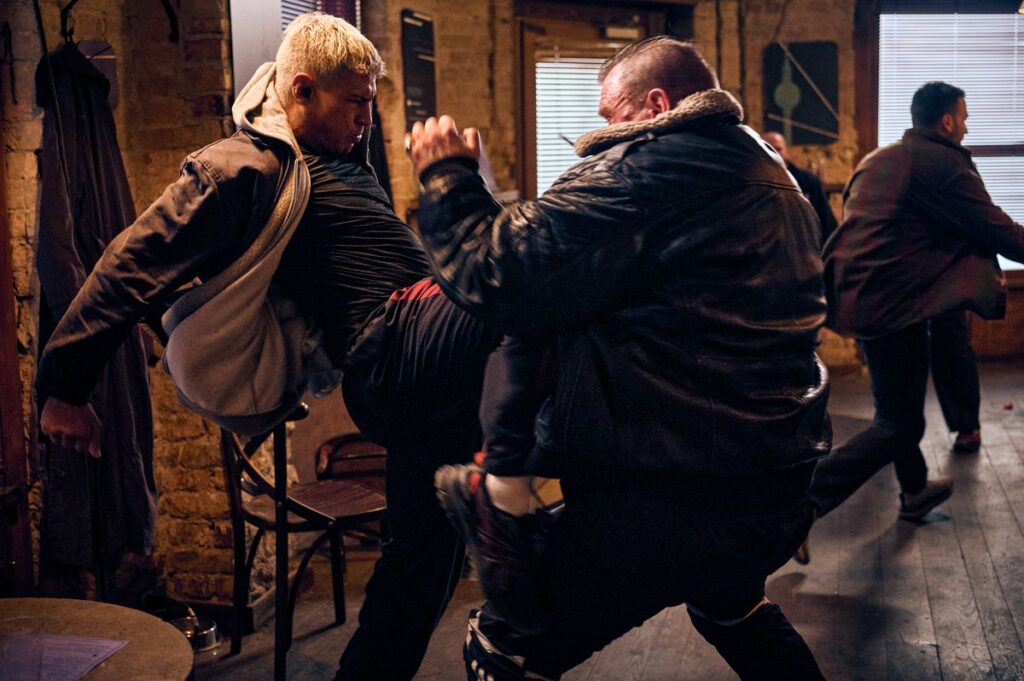Professional MMA fighter Octavio Bergmann (Emilio Sakraya) is getting ready for one of the biggest fights of his career. His opponent is late, and that’s a problem: It’s actually the night of his daughter’s birthday party, and he promised to attend. However, as he’s entering the ring, he finds out that his ex-wife is filing for sole custody unless he can get to the party in the next hour. Octavio drops everything and runs to them — angering elements of the criminal underworld who bet big on his fight and will now chase him around Berlin to try and get him back to the ring.
That’s the premise of the economical Netflix German action thriller Sixty Minutes, which released quietly in January and is one of the stronger action movies of the year so far. It’s led by a great performance from Sakraya, who is a former national karate champion, along with strong fight choreography and propulsive storytelling motivated by a time-related plot gimmick.
Octavio has 60 minutes to get from point A to point B, with stops along the way to pick up a present and a cake. The movie lets that action play out in real-time, a familiar gimmick from movies like Run Lola Run and Cleo from 5 to 7, and it really adds to the immersion. But it also gives director and co-writer Oliver Kienle opportunities those films didn’t have, as he experiments with modern technology as narrative aids.
For one, Octavio wears an earpiece connected to his phone throughout the movie, and Kienle and co-writer Philip Koch smartly use phone calls to help break up the monotony of what could otherwise be a 60-minute chase sequence. Motorized scooters also play a part, both as weapons and as a means to get around the city faster. All the while, the literal ticking clock of Octavio’s watch and the map of his journey occasionally appear on the screen, reminding us (and him) how far he has to go, and how little time he has to get there.
Photo: Reiner Bajo/Netflix
Sixty Minutes’ fight scenes are stellar, leaning on the impressive skills of Sakraya and veteran stunt performers Marie Mouroum and Aristo Luis, both of whom have significant roles in the movie. The choreography is violent but measured, reflecting many of the characters’ MMA training. Those sequences pay just as much attention to how blows are dodged as they do to how blows connect, making the fights feel realistic. Occasionally, overactive camera movement or editing undercuts the choreography, but for the most part, these scenes feel exciting and dangerous.
While still occasionally held back by a common problem with these kinds of custody thrillers — the cold, unfeeling ex-wife who’s just out to ruin the protagonist’s life — Sixty Minutes at least has the guts to make it plain that Octavio has been an absentee father and missing his daughter’s party would be the last straw (his ex-wife’s threat isn’t just some random act of cruelty). And the choice to have him run away from a big career opportunity to his daughter is a strong one, resulting in an experience where the protagonist is constantly trying to run away from the movie he’s in. Sixty Minutes gives Sakraya a lot of room to express his character’s pain and frustration with his own decisions. It’s the sort of genre fare Netflix should curate more of, and it’s a strong start to 2024 for the streamer.

